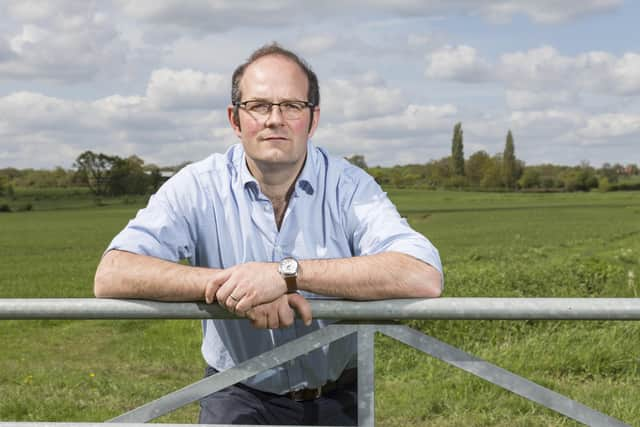Poots: ‘Eat more home grown food’


Minister Poots said: “I was pleased to host today’s meeting and I thank Mr Smith and the other members of the Commission for their recent very detailed report on the issue of food standards and trade deals.
“The report makes a very significant contribution to the debate on future food standards. It is vital that current standards are maintained and that all imports are required to meet those standards.
Advertisement
Advertisement
“I also emphasised the need to maintain quotas to ensure that the high provenance, traceability, animal welfare, animal health, food miles, environmental protection and workers’ rights are maintained.


“I do not believe there is any desire amongst the public to see more of our food sourced from abroad, especially in a post Covid-19 environment.”
The minister concluded: “I will continue engaging with the UK government and our stakeholders on trade negotiations and will highlight the need to secure an outcome which benefits all parts of the UK and is fair to our agri-food industry.”DAERA Minister Edwin Poots MLA has met with Mr Tim Smith, the chair of the UK’s Trade and Agriculture Commission, to discuss a report, which advises the government on the treatment of food commodities within future trade deals.
Minister Poots said: “I was pleased to host today’s meeting and I thank Mr Smith and the other members of the Commission for their recent very detailed report on the issue of food standards and trade deals.
Advertisement
Advertisement
“The report makes a very significant contribution to the debate on future food standards. It is vital that current standards are maintained and that all imports are required to meet those standards.
“I also emphasised the need to maintain quotas to ensure that the high provenance, traceability, animal welfare, animal health, food miles, environmental protection and workers’ rights are maintained.
“I do not believe there is any desire amongst the public to see more of our food sourced from abroad, especially in a post Covid-19 environment.”
The minister concluded: “I will continue engaging with the UK government and our stakeholders on trade negotiations and will highlight the need to secure an outcome which benefits all parts of the UK and is fair to our agri-food industry.”
Advertisement
Advertisement
Significantly, the meeting follows the publication of a statement from the National Farmers’ Union (NFU) in England and Wales, confirming that organisation’s support for gene editing.
The NFU believes new precision breeding techniques, such as gene editing, could protect crops and animals from pests and disease, help deliver net zero and allow farmers to produce more home-grown food.
Responding to the government’s consultation on future regulation, the NFU said farmers should have the choice to access the best tools available to enable a resilient and innovative British farming industry.
NFU vice president Tom Bradshaw said: “The underlying principle of this consultation is that some new breeding techniques such as gene editing are not the same scientifically as genetic modification (GM) and should therefore not be regulated in the same way, an approach already used in several countries around the world and one the NFU supports.
Advertisement
Advertisement
“Gene editing offers huge opportunities for farmers and this consultation has provided an opportunity for lively debate among our membership.
“We believe gene editing could help address pest and disease pressures in our crops and livestock, increase resilience in the event of extreme weather, as well as reducing our impact on the environment through a more efficient use of resources.
“This would support our ambitions to become net zero by 2040, allowing farmers to farm sustainably and profitably.
“We recognise that gene editing technology on its own will not be a silver bullet and if the government is to make a success of gene-editing, the regulation must be fit for purpose and robust.
Advertisement
Advertisement
“It needs to be based on robust science, enable diverse and accessible innovation, empower public sector research organisations to drive development and allow investment in products for the UK market.”
He concluded: “And it’s vital that the UK is still able to trade with the EU and that the internal UK market remains functional should England take a different approach to regulating new precision breeding techniques.
“Government must analyse the implications and discuss the issues in detail with its counterparts in other countries as well as with all parts of the UK supply chain as a matter of urgency.
“Above all, it must take responsibility for the policy and communication needed to inform the public to give them confidence in the proposed regulation.”